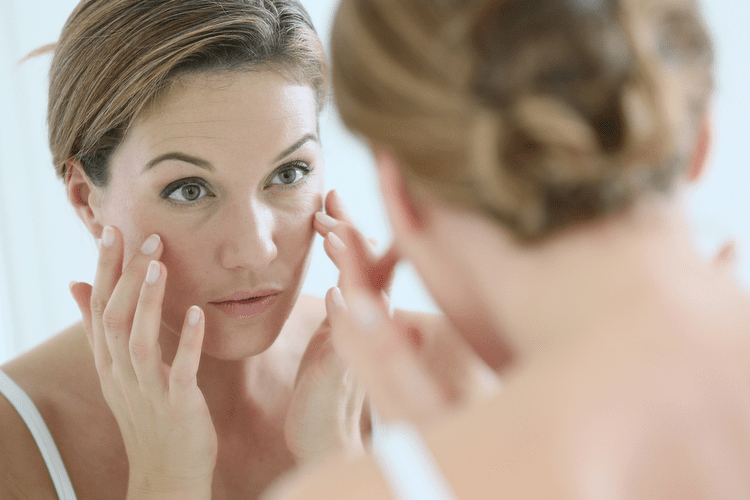Alcohol Abuse and Alcoholism: Signs, Symptoms, and Diagnosis
Alcohol Abuse and Alcoholism: Signs, Symptoms, and Diagnosis
5 de outubro de 2020 Nenhum comentário em Alcohol Abuse and Alcoholism: Signs, Symptoms, and DiagnosisAlcohol use disorder is sub-classified into mild, moderate, and severe categories. Roughly 15 million people in the United States were diagnosed with an AUD in 2018, including 19.2 million marijuana addiction men, 5.3 million women, and 401,000 adolescents ages 12–17. Living with alcohol misuse will continue to be a struggle if you do not recognize that you need help. You will continue to jeopardize your safety, your job or school, and your relationships.

Webinar: Women, men and alcohol: Why is gender important in alcohol control policies
Another way to look at your drinking habits is to think about how much you have during an average week. For women, “heavy” or “at risk” drinking means more than seven drinks per week or more than three in any day. For men, it’s more than 14 drinks in a week or more than four in a day. When AUD and other mental health conditions co-occur, treatment is most likely to be successful when both are addressed. See the Core article on mental health issues for more details. If you have an alcohol addiction, treatment can help protect your health, improve your quality of life, and save your relationships with loved ones.
Check your drinking
- If you fall into this group, alcohol causes a dramatic shift in your personality.
- Patients with AUD experience intense cravings for alcohol that drive ongoing consumption.
- Severity is based on the number of criteria a person meets based on their symptoms—mild (two to three criteria), moderate (four to five criteria), or severe (six or more criteria).
- The American Psychiatric Association’s Diagnostic and Statistical Manual of Mental Disorders says someone has alcohol use disorder if they meet two or more of 11 criteria in one 12-month period.
- Among those aged 20–39 years, around 13.5% of total deaths are related to alcohol.
After detoxification, many people with alcohol disorders need some form of long-term support or counseling to remain sober. Recovery programs focus on teaching a person with alcoholism about the disease, its risks, and ways to cope with life’s usual stresses without turning to alcohol. Psychotherapy may help a person understand the influences that trigger drinking. Many patients benefit from self-help groups such as Alcoholics Anonymous (AA), Rational Recovery or SMART (Self Management and Recovery Training).
Medications have helped many people reduce the harm that excessive alcohol causes. Sometimes the medications are used https://ecosoberhouse.com/ along with group or psychological therapy, but they can also be used alone. According to The National Institute on Alcohol Abuse and Alcoholism (NIAAA), approximately 14 million adults in the United States struggle with AUD. Alcohol abuse is drinking to the level where it damages your health, becoming dependent on alcohol. You could have been drinking to excess for years or just for a few months; either way, this is still classed as alcohol abuse. You’ll likely know that drinking too much harms your help, but you can’t stop.
- Our mission is to help individuals, communities, and families achieve freedom from drug and alcohol addiction.
- Many similar drug and alcohol rehabilitation programs offer counseling to family members, so that they can learn how to help the addicted person get the right kind of support and help.
- Some prescription medicines can treat alcohol misuse by helping people stop or reduce their drinking.
- Those individuals seem to drink less often and lower amounts after receiving treatment compared with before treatment.
- Chronic excessive alcohol consumption can negatively affect virtually every organ system.
- Children of parents who have trouble with alcohol have a fourfold increased risk of the disorder.
Can homes, schools and digital platforms drive young people’s alcohol consumption?
But some research now shows that cutting back on heavy drinking, or what’s known as harm reduction treatment, can be useful. (No cure currently exists.) But naltrexone can block you from feeling some of the effects of alcohol if you decide to start drinking again. When you take naltrexone, you won’t feel relaxed or get a euphoric “high” from drinking. This drug binds to your body’s endorphin (“feel-good” chemical) receptors so alcohol can’t interact with them.
- Because such use is usually considered to be compulsive and under markedly diminished voluntary control, alcoholism is considered by a majority of, but not all, clinicians as an addiction and a disease.
- Department of Agriculture, the dietary guidelines provide recommendations on what the average American should eat and drink to promote health and help prevent chronic disease.
- If you drink, do so in moderation—no more than one drink a day for women and no more than two drinks a day for men.
Maintaining sobriety—often called recovery—is a long-term process that can take many forms. Fellowship groups such as Alcoholics Anonymous are often very helpful. Awareness of the definition and who is at risk for developing AUD can help people make better decisions about their use of alcohol. Mindfulness techniques such as yoga, meditation, breathing exercises, and visualization may be useful to some people for focusing their thoughts away from drinking. Additionally, alcohol may cause inflammation in the gastrointestinal tract.
Genetic, psychological, social and environmental factors can impact how drinking alcohol affects your body and behavior. Theories suggest that for certain people drinking has a different and stronger impact that can lead to alcohol use disorder. Many people with alcohol use disorder hesitate to get treatment because they don’t recognize that they have a problem. An intervention from loved ones can help some people recognize and accept that they need professional help. If you’re concerned about someone who drinks too much, ask a professional experienced in alcohol ethanol abuse treatment for advice on how to approach that person. If your pattern of drinking results in repeated significant distress and problems functioning in your daily life, you likely have alcohol use disorder.
This means people in these groups could be missing out on key preventive care and treatment. The American Psychiatric Association’s Diagnostic and Statistical Manual of Mental Disorders says someone has alcohol use disorder if they meet two or more of 11 criteria in one 12-month period. AUD may be mild, moderate, or severe, based on how many of the criteria are true.

This article discusses alcohol dependence, alcohol abuse, and the key differences between them. Treatment of AUD focuses on relieving symptoms of alcohol withdrawal in the short term and then suppressing alcohol cravings in the long term. Many people with AUD continue to drink even as they develop health problems related to drinking.
Alcohol use disorder (AUD) is a medical condition characterized by an impaired ability to stop or control alcohol use despite adverse social, occupational, or health consequences. It encompasses the conditions that some people refer to as alcohol abuse, alcohol dependence, alcohol addiction, and the colloquial term, alcoholism. Considered a brain disorder, AUD can be mild, moderate, or severe. Lasting changes in the brain caused by alcohol misuse perpetuate AUD and make individuals vulnerable to relapse. The good news is that no matter how severe the problem may seem, evidence-based treatment with behavioral therapies, mutual-support groups, and/or medications can help people with AUD achieve and maintain recovery.
Effects of long-term alcohol use
If you’re worried about a loved one’s drinking habits, you may want to think about doing an intervention. This is a face-to-face talk where you’ll lay out examples of their harmful behavior and suggest a specific treatment plan. You, and everyone else who’s present, will also share what you’ll do if the person refuses to get treatment. If your doctor thinks you need more support to stop drinking, they’ll likely refer you to a mental health provider, such as a counselor or therapist. If you’re at this stage, alcohol has become the focus of your life, whether you’re able to admit that or not. Your days probably revolve around drinking and when you’ll have your next drink.

